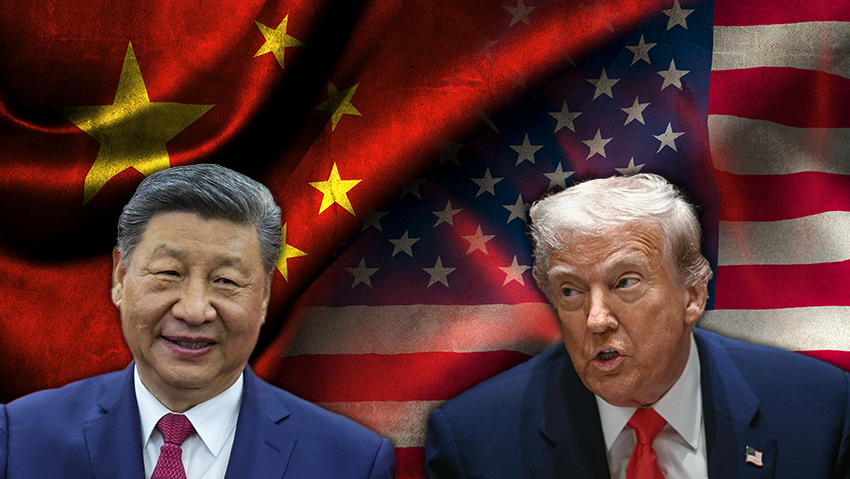For decades, policymakers in Washington believed that if we opened our markets to China and brought it into the World Trade Organization (WTO), China would gradually become "more like us." More democratic, more transparent, more respectful of private property and intellectual innovation.
Instead, as I argued with Shaomin Li in the Journal of International Business Policy, China mastered the art of "rule through law" — selectively using law not to create fair markets, but to entrench the one-party state, gain economic advantages, and squeeze foreign rivals.
1 View gallery


Xi Jinping, Donlad Trump
(Photo: Shutterstock/ AFP / John Hamilton/ US Department of Defense, AP, Alex Brandon)
Theft as strategy, not mistake
China’s government doesn’t just tolerate intellectual property theft — it systematically sponsors, organizes, and executes it. From pressuring foreign firms into joint ventures where they must reveal trade secrets, to direct state-sponsored cyberattacks stealing patents and defense technologies, IP theft is a feature, not a bug, of China's rise.
When companies like DuPont reported intellectual property violations by Chinese partners, they found themselves raided by Chinese police instead of being protected. It’s a strategy designed to shift the world's technological frontier eastward, by any means necessary.
Selective law enforcement: A tool for power
In China, the law is not blind — it’s a weapon. Huawei, for example, sues Western governments when it claims its rights are violated abroad, while benefiting from a home system where citizens and companies have no right to sue the government.
When it suits Beijing, the law is enforced harshly against foreign firms. When it suits their industries, enforcement evaporates. This "rule through law", rather than "rule of law," enables the Chinese Communist Party to pursue national strategic goals while maintaining a façade of legality.
Buying friends, building empires
Meanwhile, China's Belt and Road Initiative (BRI) rewrites the rules of global investment. As we demonstrated in another study, Chinese companies don't shy away from weak or corrupt states — they seek them out.
Under the BRI, Chinese state-owned enterprises pour billions into fragile countries with weak rule of law, limited transparency, and no accountability, using infrastructure loans and development projects to lock in political loyalty and economic dependence.
<< Get the Ynetnews app on your smartphone: Google Play: https://bit.ly/4eJ37pE | Apple App Store: https://bit.ly/3ZL7iNv >>
This isn't philanthropy. It’s leverage. In places like Angola, Kenya, and Pakistan, BRI projects often come tied to opaque deals, favorable contracts for Chinese firms, and, in some cases, sweetheart access to critical natural resources.
The false promise of evolution
Some in the West still argue that as Chinese companies develop their own intellectual property, they will "evolve" into champions of global rules and fair play. But as our research shows, this faith is misplaced. China's party-state structure requires control, not openness. Even as Chinese companies file more patents, the political system punishes true judicial independence and rewards loyalty over innovation.
Thus, systemic IP theft, selective enforcement, and manipulation of markets are not temporary growing pains — they are embedded features of China's political economy.
Where do we go from here?
If the United States, Europe, Israel and other democracies want a future of fair competition, the answer is not naïve engagement. It is strategic realism: recognizing that China's actions are deliberate, not accidental. It means tightening investment screening, strengthening alliances, and defending the integrity of our legal and technological systems, before it’s too late.
The real competition is not just economic — it’s about which set of values will define globalization for the next century: openness and fairness, or power and control masked by prosperity.
The next move is ours.
- Prof. Ilan Alon is a professor of Business and Economics at Ariel University and an expert on international economics and cryptocurrencies.


